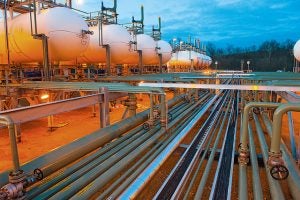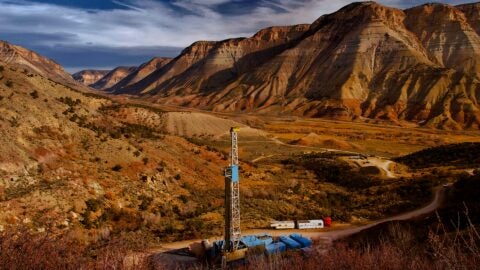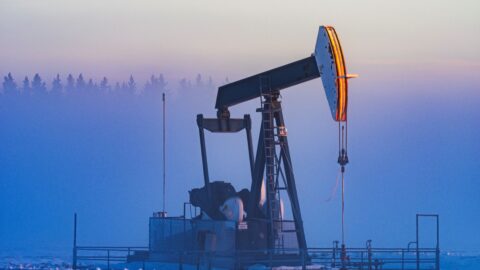The next major ESG opportunity for investors in Europe
 In recent years, institutional investors have demonstrated their formidable influence, as companies respond to investor environmental, social and governance demands and governments take note of forceful investor calls to action. Europe’s leading investors have been especially active, stepping to the vanguard to address the climate crisis with a sense of urgency and injection of ambition.
In recent years, institutional investors have demonstrated their formidable influence, as companies respond to investor environmental, social and governance demands and governments take note of forceful investor calls to action. Europe’s leading investors have been especially active, stepping to the vanguard to address the climate crisis with a sense of urgency and injection of ambition.
As Europe pursues its bold “Green Deal,” European investors have a powerful chance to help address a climate blind spot and policy vacuum to ensure worthy climate goals are not derailed. Investors can do so in a way that generates shareholder value while mitigating one of the largest near-term sources of climate risk. The opportunity lies in addressing methane emissions from the global oil and gas industry, which emits more than 75 million metric tons of the greenhouse gas every year.
Europe is one of the world’s largest net importers of natural gas and can turn this climate liability into an opportunity to reduce emissions well beyond Europe’s shores. The opportunity presented is significant: if the global oil and gas industry reduced methane emissions by 45% by 2025, it would deliver the same near-term benefit to the climate as closing 1,300 coal-fired power plants — one-third of all the coal plants in the world.
Many of Europe’s investors have been among the most active on methane for years, recognizing it as a material ESG risk to their portfolios, albeit one that can be managed with cost-effective existing technologies. While there has been some encouraging voluntary action by a small group of companies, what’s missing now is government policies to get solutions to scale, fast.
The next major ESG opportunity for investors in Europe Share on XThe upcoming 2020 gas market reform as part of the European Green Deal offers a pivotal opportunity for the European Union to prioritize the passage of strong policy to address methane emissions from natural gas, both produced in and imported into the EU. Steady natural gas consumption in the EU and declining EU production means the EU’s reliance on gas imports for consumption reached an all-time high of 78% in 2018.
As a progressive leader on climate change and the world’s largest international importer of natural gas, the EU is in a unique position to catalyze methane emission reductions among oil and gas suppliers, including Norway, Russia, Algeria, Qatar and the United States.
Window of opportunity for EU methane policy
Although the EU is aggressively moving off fossil fuels and aims to become carbon neutral by mid-century, the transition to net-zero, low-carbon energy sources will still require natural gas in the energy mix. Today, the EU comprises 47% of the internationally traded gas market, primarily for heating demands.
Under the EU’s 1.5 degrees Celsius net-zero ambition, the European Commission expects gas to be part of the EU’s energy system until 2050. Even if EU policymakers take radical measures to decrease natural gas consumption in the short term, the amount of unchecked methane emitted into the air would be a setback for climate goals. Methane is responsible for more than 25% of the warming the planet is experiencing today. Managing it effectively also enables countries to reduce the heightening ambition gap with Paris climate goals ahead of the global COP 26 climate summit later this year, where U.N. leaders will be looking for new regional climate commitments and tangible greenhouse gas reduction results.
As Tim Goodman, Director for Hermes EOS at Hermes Investment Management in London, summed up in an interview with EDF last year, “Methane is a far more potent greenhouse gas than carbon dioxide — the more that we can minimize its effects, the greater the window the world has to transition to a low carbon economy. Methane’s effects don’t last as long as carbon, but if we don’t tackle methane, we aren’t taking meaningful action to move to a low-carbon economy.”
A chance to move the needle
As EU policymakers advance gas reform, they must set strict methane emission control requirements and use incentives to bring suppliers along, coupled with consistent monitoring and reporting processes to ensure environmental integrity.
EU investors have an imminent opportunity to advocate for strong methane standards with European policymakers in Brussels and member states, and also engage directly with industry to build a broad coalition of support across the natural gas value chain. Producers, importers, exporters and major industrial users of natural gas must all be part of the solution, and their investor base has a stake in getting this right.
Fortunately, unprecedented investor engagement in the U.S. this past year drove many American operators to oppose the Trump administration’s recent rollbacks of methane standards. But with the U.S. methane regulatory battle now headed into the courts, investors can turn their sights to methane policy change in Europe by driving more awareness around this issue as new methane policy is negotiated by the EU.
Through the investor voice and their engagements, investors can play a critical role in helping the EU take global leadership and turn down the dial on potent methane emissions. As influential investor groups like Climate Action 100+, the Institutional Investors Group on Climate Change, the Principles for Responsible Investment and their members launch their 2020 policy engagements, methane is an actionable opportunity to advance climate goals while managing investment risk.
If you are interested in getting involved or learning more, please contact dwatson@edf.org.












